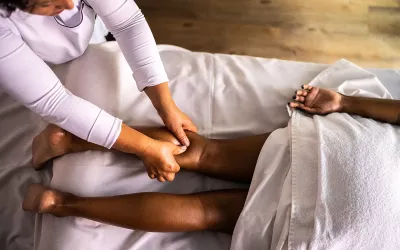Solo practitioners make up most massage therapy practices, but anyone in the profession can tell you that being a solo practitioner can be wildly different from practicing massage therapy for a larger spa or franchise. So, why should lawmakers and regulators treat these two business models differently, even if they are doing the same work?

For starters, solo practitioner businesses often have a completely different structure. They typically have a smaller book of business and more flexible hours. A lot of therapists hang their own shingle precisely because it affords them the flexibility they need, often to help balance family and personal obligations. Many solo practitioners operate out of their homes, which necessitates a certain level of privacy. A home office is not like a storefront where anyone can walk in at any time during business hours; therapists operating out of their homes are usually appointment-only. They also, of course, have food and beds in their home, since it is their residence, which are two big no-no’s in storefront massage therapy establishments.
Additionally, solo practitioners often have more financial and time constraints since they’re doing and paying for everything themselves. They typically do not have a receptionist or cleaning staff on the payroll—they are handling every aspect of the business themselves. Some regulatory burdens, like those that are appropriate for bigger establishments, do not make sense for solo practitioners.
This is why ABMP always advocates for a solo practitioner exemption in state massage therapy practice acts. An exemption protects solo practitioners from onerous regulatory and overhead costs, like establishment licensure, that are usually too costly and administratively burdensome for one person to handle. An exemption also prevents those operating out of their homes from having their private residence intruded upon by authorities with unscheduled inspections. It is unfair to expect a solo practitioner operating out of their home to be available any day, anytime for surprise inspections that disrupt their business operations and their family life. An exemption is also critical for home offices because it prevents potential inspection violations for things that are completely normal in a home, like having food, pets, or beds in the building, so long as those things are not in the area where services are provided.
ABMP advocates for a solo practitioner exemption in state massage therapy practice acts.
What does ABMP recommend to states navigating massage therapy regulation? Exempt solo practitioners from burdensome establishment licensure, from facility restrictions on beds and food, and from surprise inspections that intrude on a therapist’s private life. If solo practitioners are not protected by these necessary exemptions, it could decimate the profession. We applaud the many states and municipalities that already include solo practitioner exemptions in their statutes and regulations and will continue to advocate for these exemptions as we see massage therapy regulation evolve across the country.








